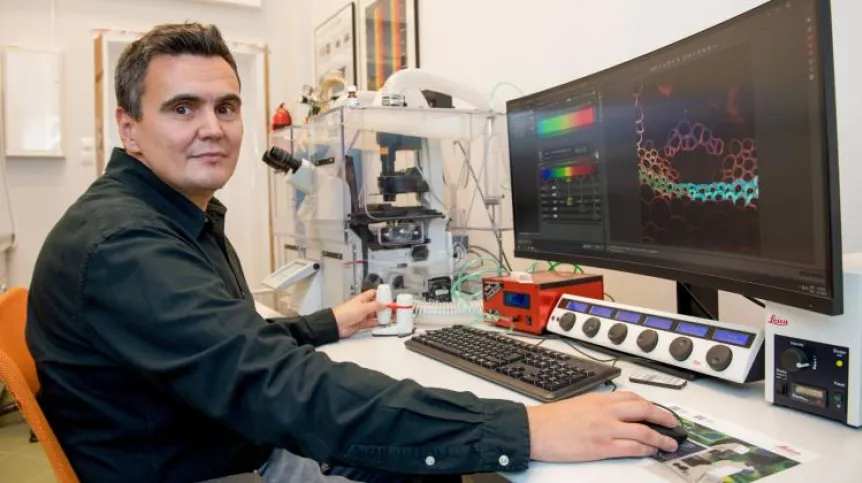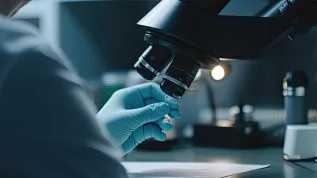
Professor Marcin Drąg, winner of the 2019 Foundation for Polish Science Prize, studies the enzymes responsible for civilization diseases and creates selective chemical tools for detecting cancer. "My research is already used in projects that will result in the development of diagnostic tests and new drugs," the scientist told PAP.
Professor Marcin Drąg from the Faculty of Chemistry of the Wrocław University of Science and Technology is this year`s winner of the Foundation for Polish Science Prize in the field of chemical and material sciences for developing a new technological platform for obtaining biologically active compounds, in particular proteolytic enzymes inhibitors. The platform may be used to develop new therapies, drugs and diagnostic methods.
Professor Drąg explains his laboratory conducts research on so-called unnatural amino acids. "We created compounds that are incomparably better than natural ones in terms of activity, and above all selectivity, which allows us to make practically perfect molecules," the professor says.
He adds that his team uses these molecules to monitor the activity of enzymes, in particular proteases, i.e. proteolytic enzymes. "Many great anti-cancer drugs, but also drugs for other diseases, including AIDS, are based on proteases," he notes.
The scientist explains that together with colleagues he is working on markers that makes it possible to monitor the level of these enzymes in the body. "So theoretically, we want to do diagnostic tests; our work can also be used to look for structures that lead to the development of new drugs," the scientist points out.
He added that at this stage his team cooperates on many levels with universities around the world and with pharmaceutical companies. "Our projects are already being used in very specific studies that address specific diseases and set specific medical goals," he says.
The Imaging Laboratory that Professor Marcin Drąg created at the Faculty of Chemistry of the Wrocław University of Science and Technology, has the first mass cytometer in Poland. It is currently the most advanced device for analysing and diagnostics of cell samples. "This method enables is to image the activity of dozens of enzymes simultaneously. We are already starting cooperation with the Lower Silesian Oncology Center and we will be testing samples from cancer patients," the scientist said.
In another project, Prof. Drąg`s team of conducts research into the treatment of neutropenia (a haematological condition that reduces the number of neutrophils responsible for maintaining immunity). Scientists from Wrocław cooperate with the team led by Professor Wojciech Młynarski from the Medical University of Lodz.
PAP - Science in Poland, Piotr Doczekalski
pdo/ agt/ kap/
tr. RL


